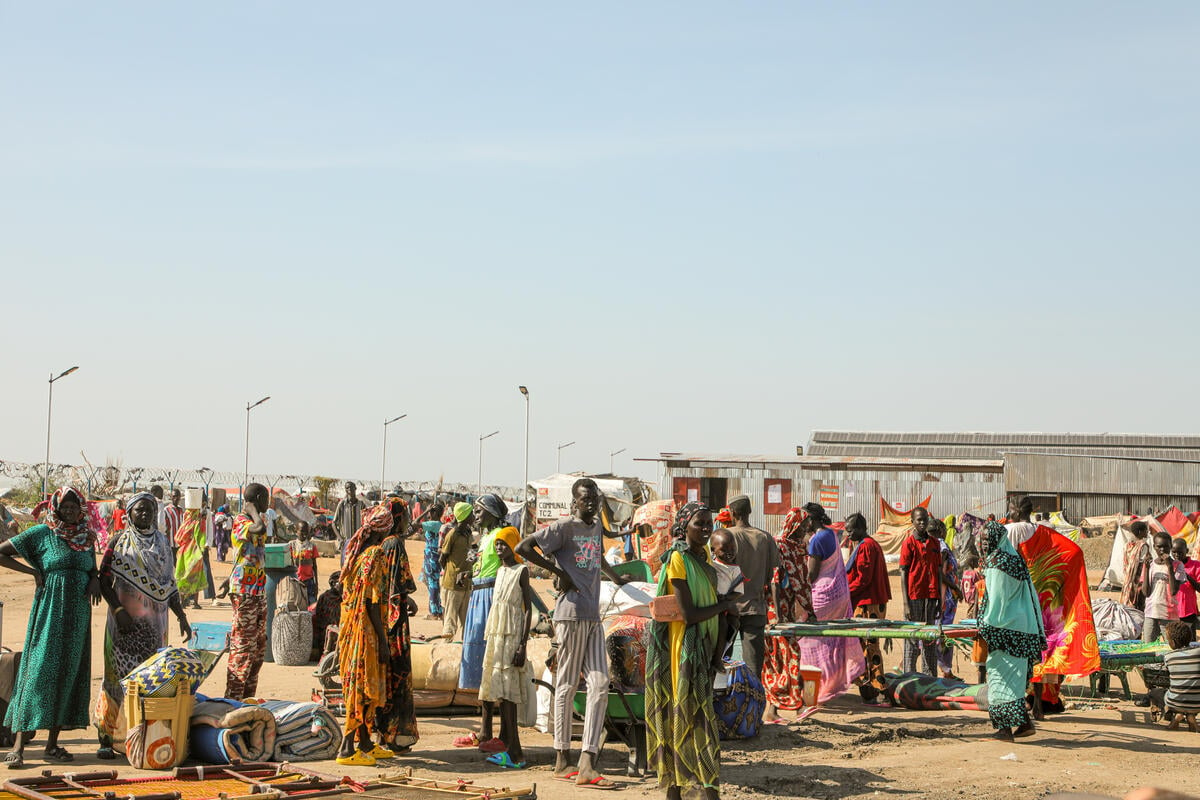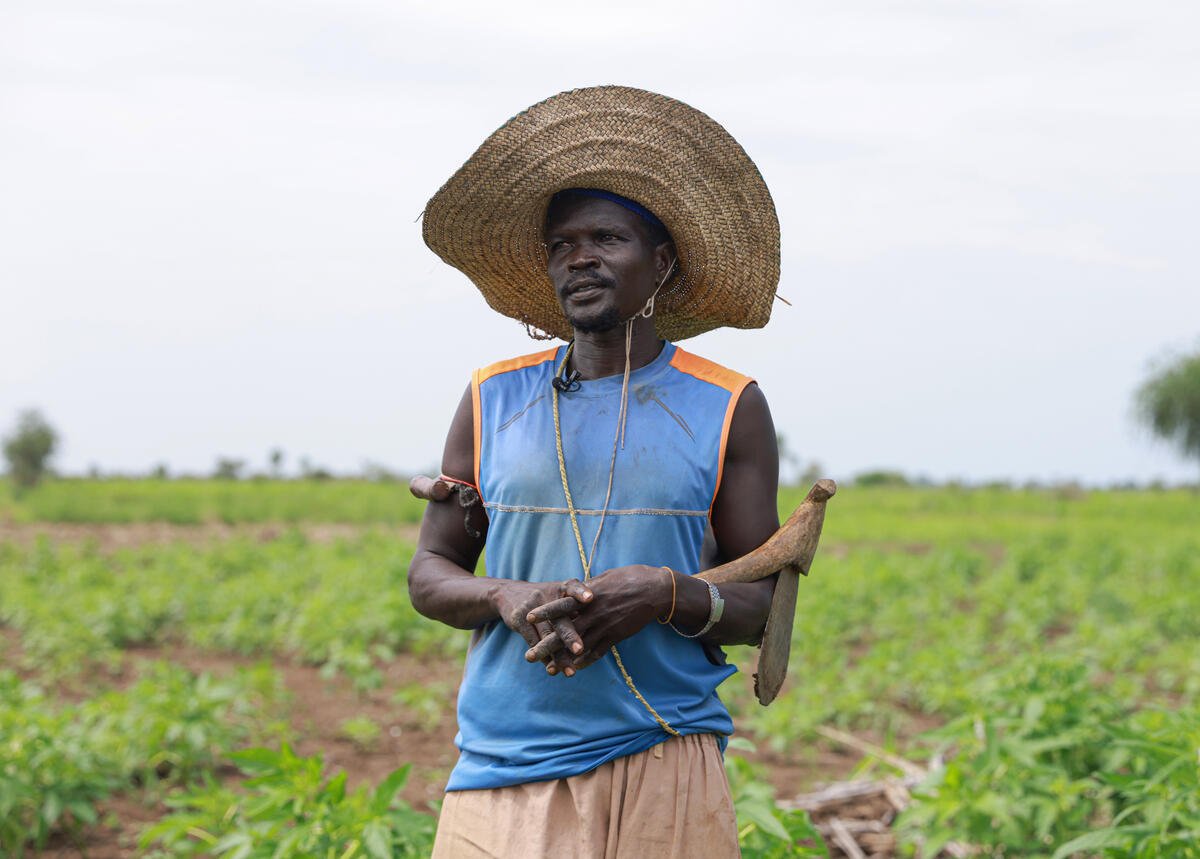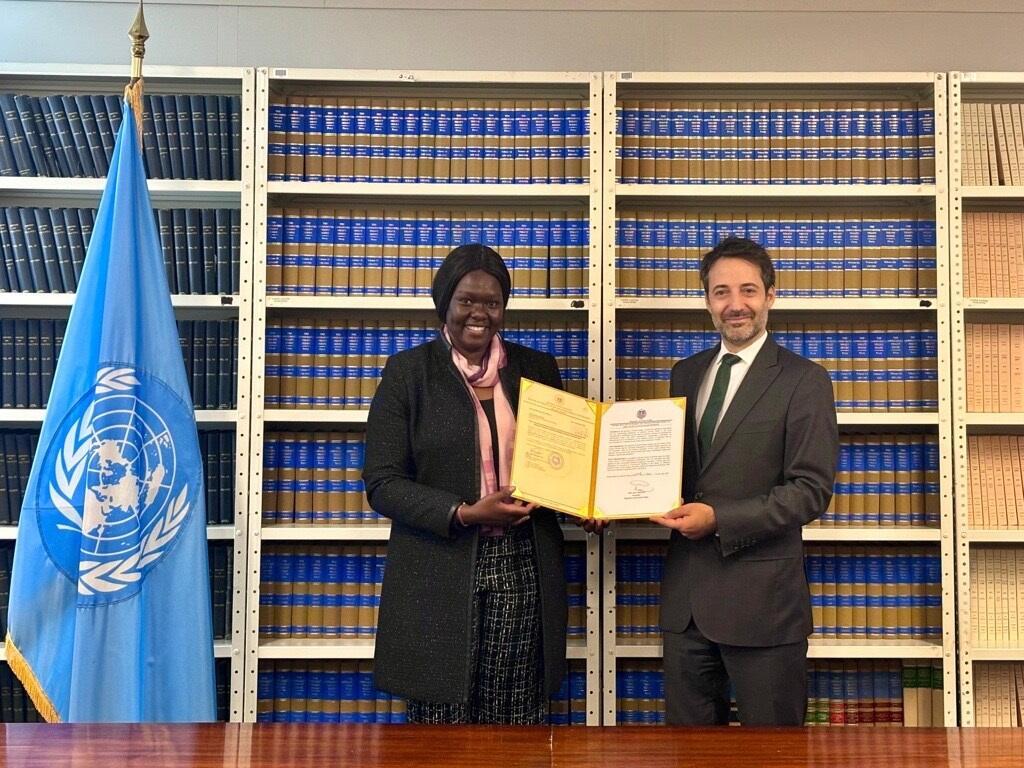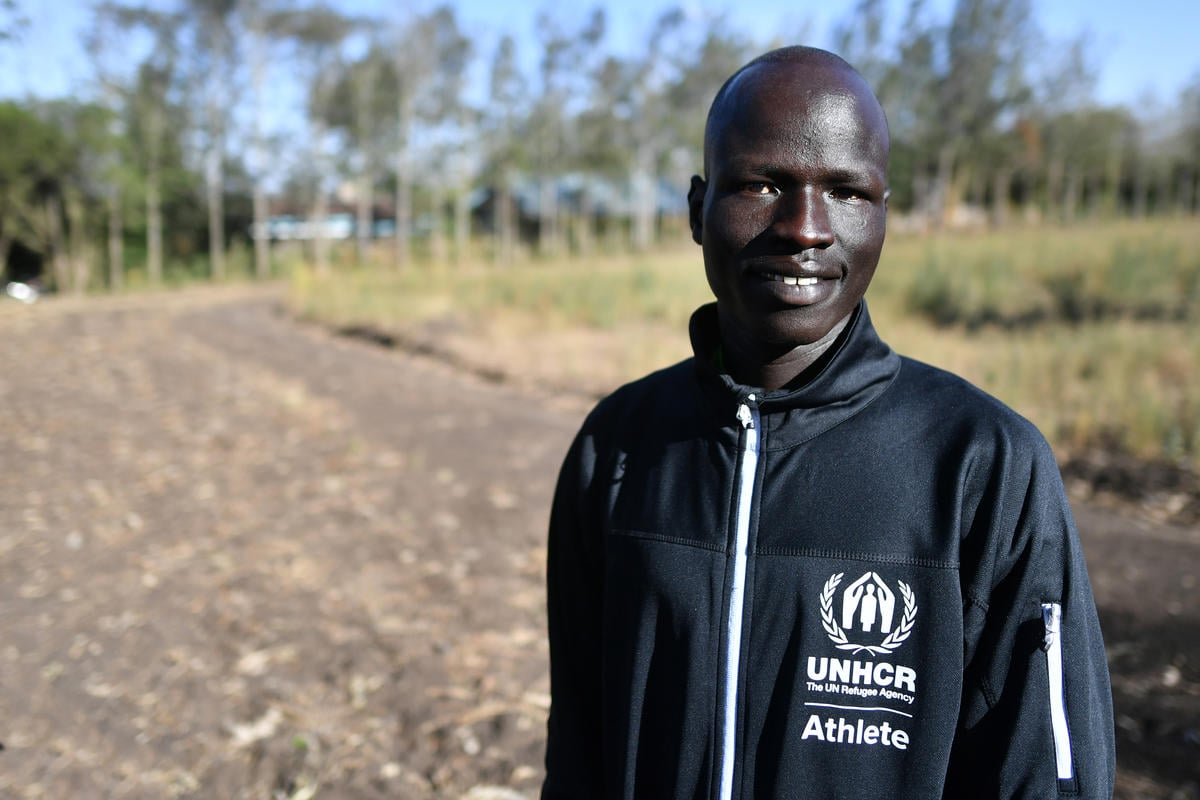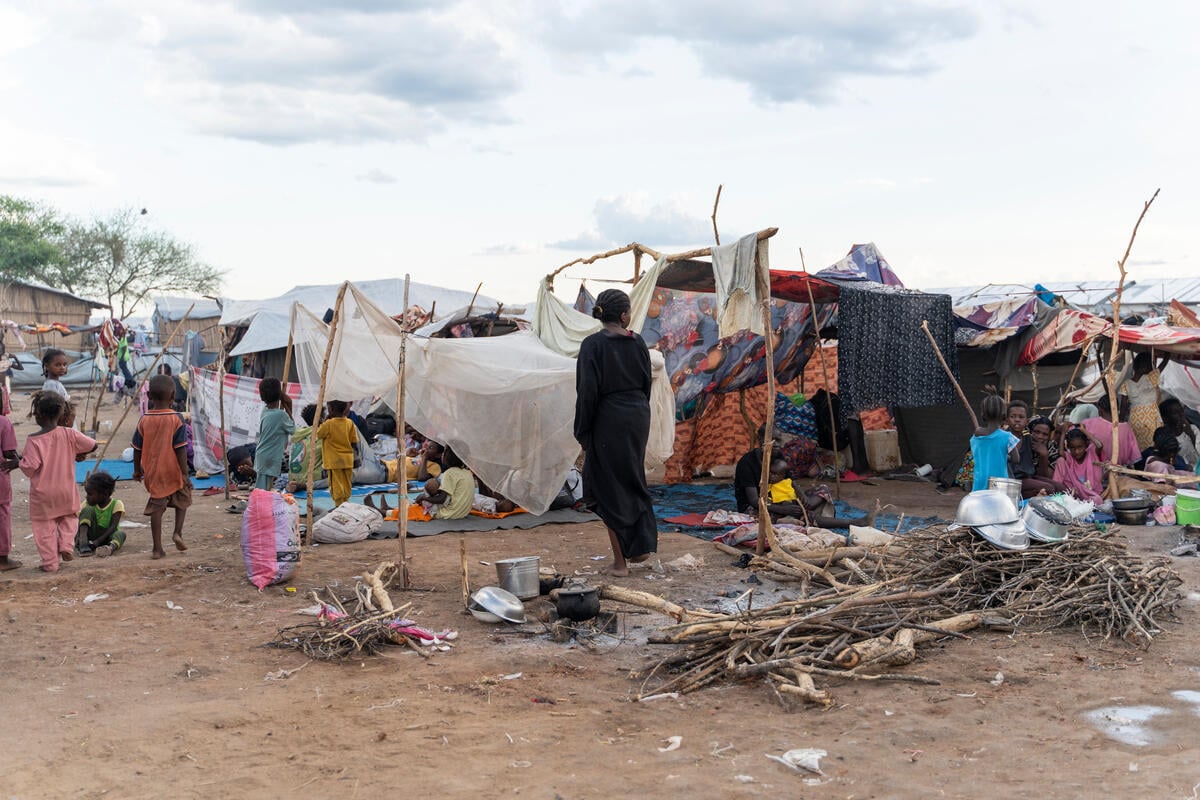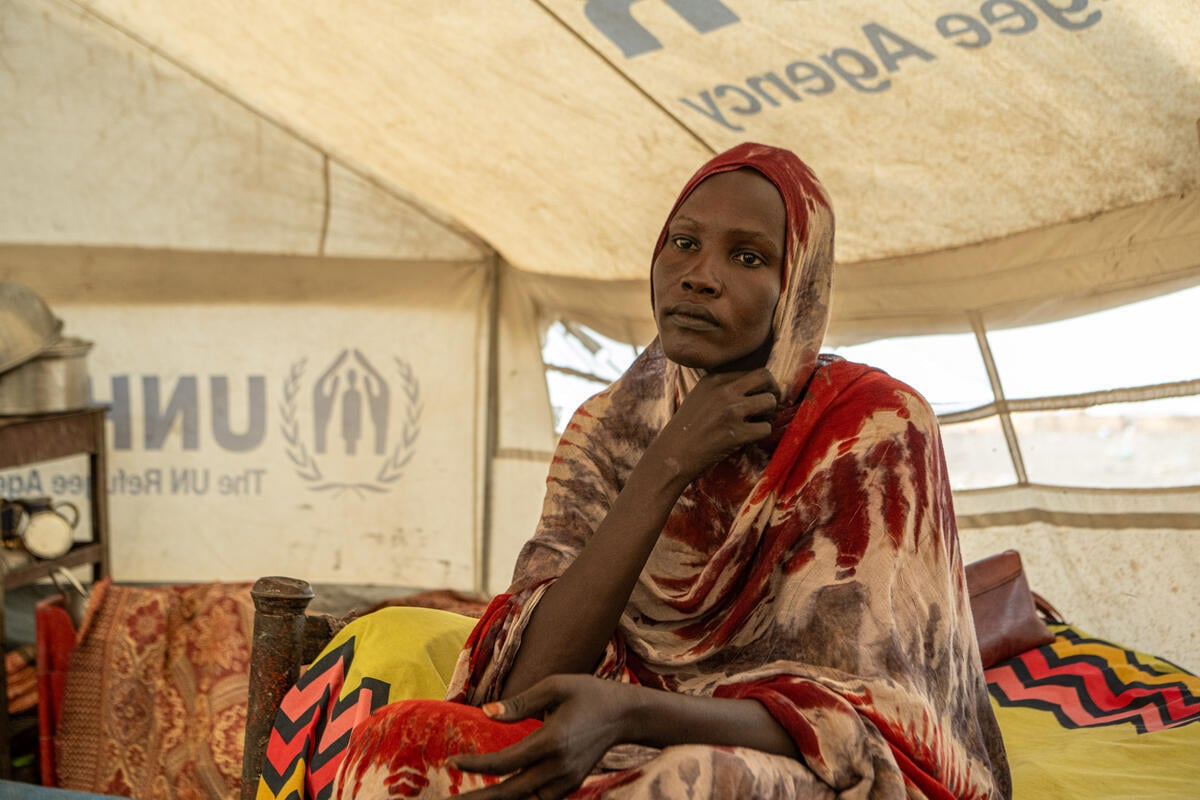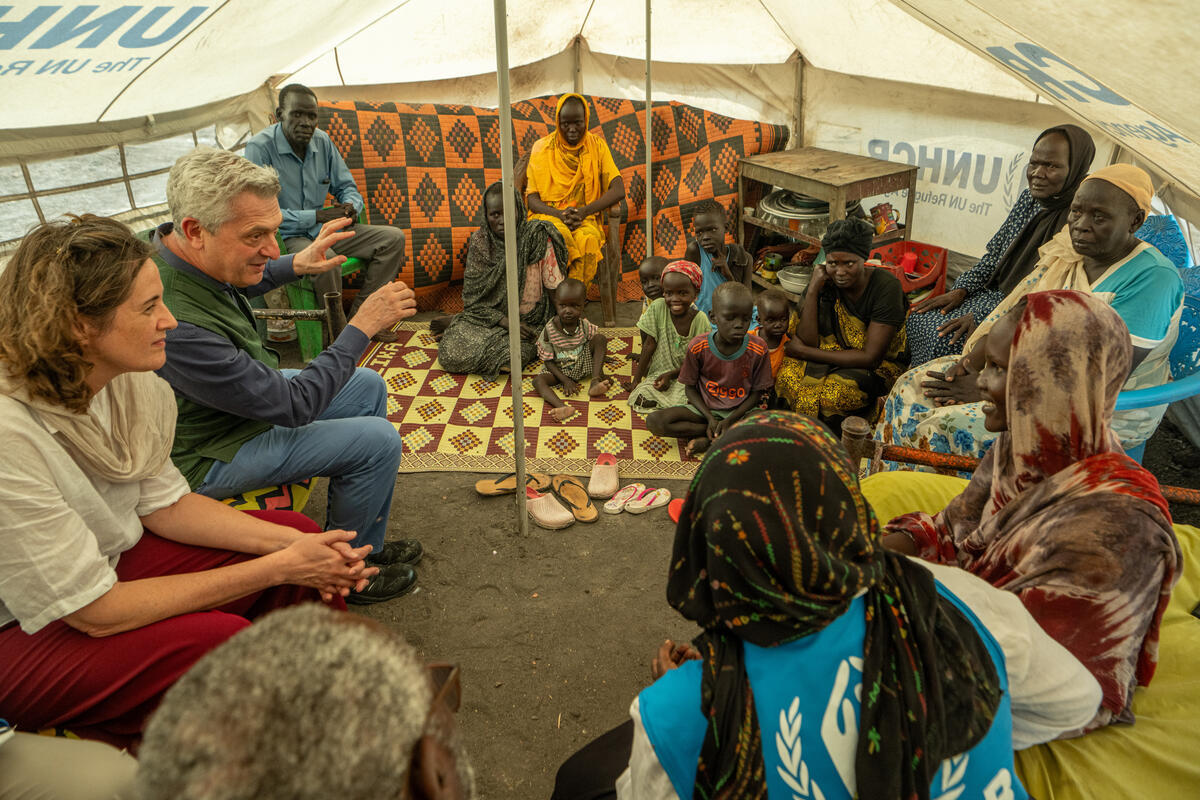Education and outreach key to combatting hepatitis outbreak in South Sudan
Education and outreach key to combatting hepatitis outbreak in South Sudan

YUSUF BATIL CAMP, South Sudan, March 11 (UNHCR) - A month after she began treatment for hepatitis E, the yellow, jaundiced eyes of Hawa Hamid Ramadan are evidence of her battle with the debilitating disease, though she insists she is feeling better.
Her improvement, she says, is not the result of the medications she was provided by health workers in the Yusuf Batil refugee camp in South Sudan's Upper Nile state, but rather the curative properties of a traditional herbal remedy.
Hepatitis E is a liver disease that is transmitted mainly through drinking water that has become contaminated as a result of poor sanitation. In the South Sudan emergency, the disease was first detected in the Yusuf Batil camp in July 2012 and had reached its peak by November.
A second outbreak was discovered a month later. Nearly 64 per cent of more than 6,500 reported cases of the disease in Upper Nile have occurred at the refugee camp, including 94 deaths. The camp currently holds more than 37,500 refugees.
Ramadan's teenage son was the first member of the family to contract the virus. After he passed it on to his father, it was only a matter of time before Ramadan woke up one morning feeling listless and nauseous, her body aching from head to toe.
Like her son and husband before her, 40-year-old Ramadan sought medical attention at the camp's health centre. There is currently no effective treatment for hepatitis E and the illness is normally self-limiting. Prevention, through improved hygiene standards, is the most effective approach to addressing an outbreak.
When her nausea and body aches did not improve with the help of prescription drugs, Ramadan, like many other infected refugees, turned to traditional medicines. Her Ngassana tribe from Sudan's Blue Nile state have traditionally used so - a combination of herbs and extracts from the bitter tasting leaves of the neem tree - to treat "yellow eyes," which are caused by jaundice.
Ramadan's husband, Burula Fata Takona arrives at the family's home carrying the herbs he has spent hours searching for in the camp's periphery, digging up tubers and collecting leaves to brew the medicine for his wife. The tubers are pounded into paste and soaked in water while the leaves are steeped in boiling water for maximum effect.
The som, taken before breakfast, encourages vomiting which is believed to remove impurities from the body. The juice from the neem leaves is poured over cooked okra and eaten with sorghum, a staple food in South Sudan. During treatment, the recipients steer clear of oil, salt and meat.
"It works!" Burula exclaims. "Look at me now." Like his wife, he had been bedridden, but after taking the traditional medicines he claims that he is stronger and that his appetite has returned and the yellow tinge in his eyes has diminished.
"While we cannot stop people from using traditional medicines which they have relied on all their lives," says Martin Muita, a UNHCR public health officer. "We can and are providing continuous education, options and examples that demonstrate how, through frequent hand washing after toilet use and before food preparation, one can avoid infection and infecting others."
UNHCR has put in place an enhanced hepatitis E public education strategy, which includes awareness campaigns in all camps on the disease's transmission and the need for proper hand washing.
Latrine cleaning kits have been distributed while soap has been handed out to households, and hand washing facilities outside the latrines are supplied with soap every week. Camp cleaning days, when residents are responsible for cleaning their yards and disposing of refuse, have also been organized.
Community outreach workers and hygiene promoters call on traditional healers, birth attendants, sheiks and other leaders in the refugee camps to explain the need to go to the camps' clinics for proper medical care.
"Over time, we have gained the trust of traditional healers and have explained to them that what we are dealing with here is not malaria, which presents similar symptoms, but hepatitis," says Doctor Muita. "Through their leaders we strongly encourage refugees to take advantage of the free health services in the camp clinics as opposed to relying on alternative medicines to treat hepatitis E."
The construction and decommissioning of latrines is continuing in the camp, water is systematically monitored and tested, and new boreholes for the provision of safe water are being drilled.
By Pumla Rulashe in Maban County, South Sudan


